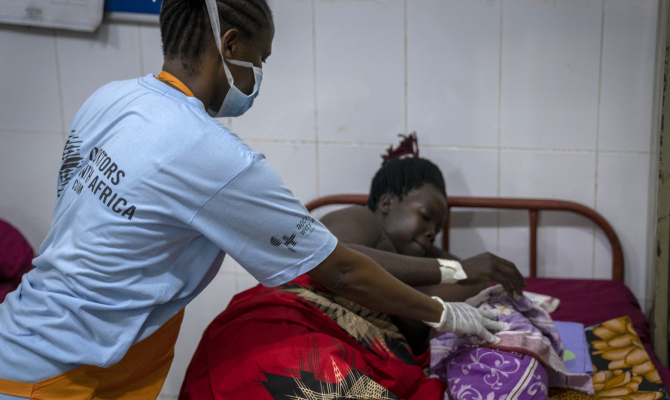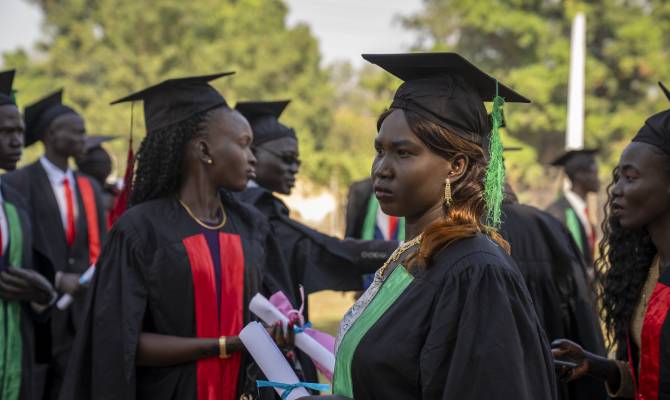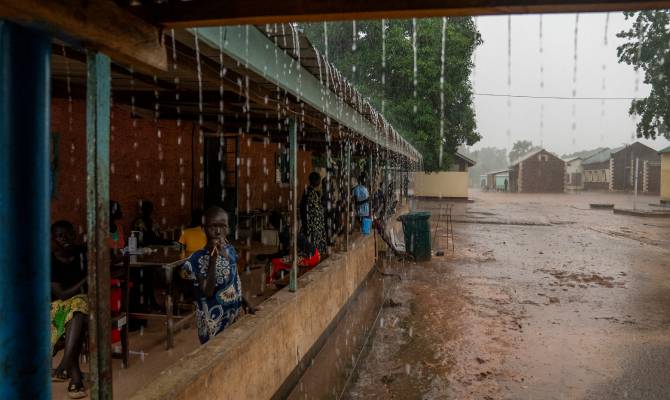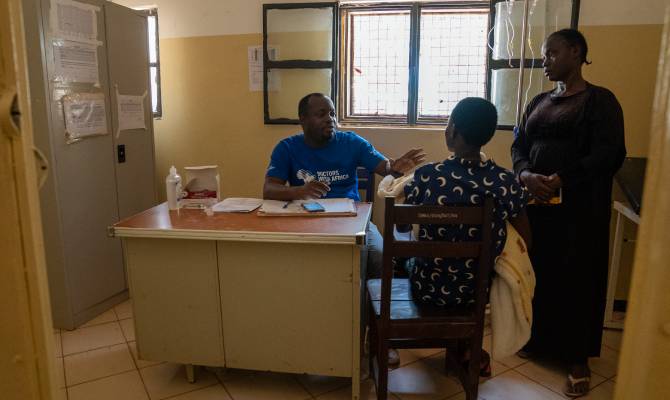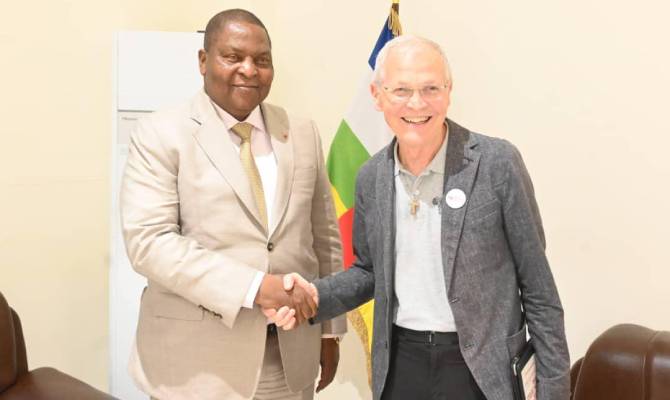Whether they are professional or traditional, tutor or students, midwives play a pivotal role in esuring the well-being of mothers and children. As the world celebrate the International Day of Midwives on May 5th, we take the opportunity to celebrate them all through the words of Judith Abwol.
«It’s a matter of attitude, a spirit of service, and curiosity, but it also takes a lot of dedication and composure to be able to intervene promptly in situations of extreme difficulty and emergency. Holding two lives in your hands: that of a woman and that of her future child is a great responsibility».
Judith Abwol is a Ugandan midwife. We reach her through a Skype call all the way to South Sudan where she has been working as a teacher and clinical midwife since 2021.
«For the past three years, our days have been spent between the classrooms of the Institute of Health Sciences and the delivery room. The lessons start at 8 am and last until 5 pm. Then we move a few meters and enter the delivery room. Everything is here, our life is here with the South Sudanese women. Sometimes it’s easy to lose track of time and days: what marks our days are the check-ups, the deliveries, the lessons».
Judith speaks in the plural when describing the Institute of Health Sciences in Lui, a microcosm she inhabits with Peninah, the midwife in charge of the school, and 22 female students from all over the country. They are together every day, and often at night because the clinic is never empty. The students take turns to ensure a 24-hour presence, and Judith, or Peninah, are always by their side.
«Often during the night, there are emergencies, the most complex cases, and then we must be there, beside our students to guide them. We are always one step behind them; we have to give them space to improve and put into practice what they have learned in the classroom, but we must remain vigilant and, if necessary, be ready to intervene to show them how».
Morning lessons, clinical practice in the afternoon and at night, with a lunch break in between, evaluation tests, moments of exchange and confrontation, interviews, and simulations. All this to motivate and inspire young students in a commitment that often puts them to the test.
«I try to consider this class as if it were a family: they are people who have left home and their homeland, many will only return to their loved ones at the end of their studies, three years from now. It’s important to make them feel welcome and put them in a position to study and work to the best of their abilities» says Judith.
The Institute of Health Sciences in Lui is one of the two midwifery and nursing training schools supported by Doctors with Africa CUAMM in South Sudan. Inaugurated in 2014 in the presence of the country’s Minister of Health, the school trains future healthcare professionals of this country every three years, one of the most fragile in the world. Coming from years of conflict, South Sudan today has some of the worst health indicators in the world. Just think that the maternal mortality rate is 1,150 per 100,000 live births, while neonatal mortality is around 40 deaths per 4,000 live births. It is these numbers that motivated Judith to leave Uganda to use her skills and dedication to serve the most vulnerable, not only engaging in clinical work but, above all, choosing to teach.
«I lived and worked in Uganda when South Sudan was at war, Judith explains. Terrible news came from this country, and I listened to them on the radio and news broadcasts without knowing what to do but with extreme pain for what was happening. When the war ended, I continued to learn about the country, and I was shocked by the health data, especially those on maternal and child health. I thought it was time to do my part».
When she left for South Sudan, Judith had already been working as a midwife in Uganda for some time, where she held a position of responsibility at the Giuseppe Ambrosoli Memorial Hospital. 20 years of service in that facility in Kalongo, Agago district, northern Uganda. First as head of the pediatric department, then in charge of the maternal and child nutrition department.
«I started as a cleaner, Judith recalls, but I always knew this was my path: to help others, the most vulnerable, women, and children. I wanted to follow in the footsteps of my mother, who was a traditional midwife. The memory of her commitment, of the hours spent in the field meeting women and raising awareness about women’s health, was my greatest inspiration. Today, I feel the nostalgia for my children deeply, but I have the awareness of doing the right thing by being here. As I dedicate my time to the Institute and see young people become the future professionals of this country, I am teaching them something, and then I am, I believe, a good mother and a good midwife».

